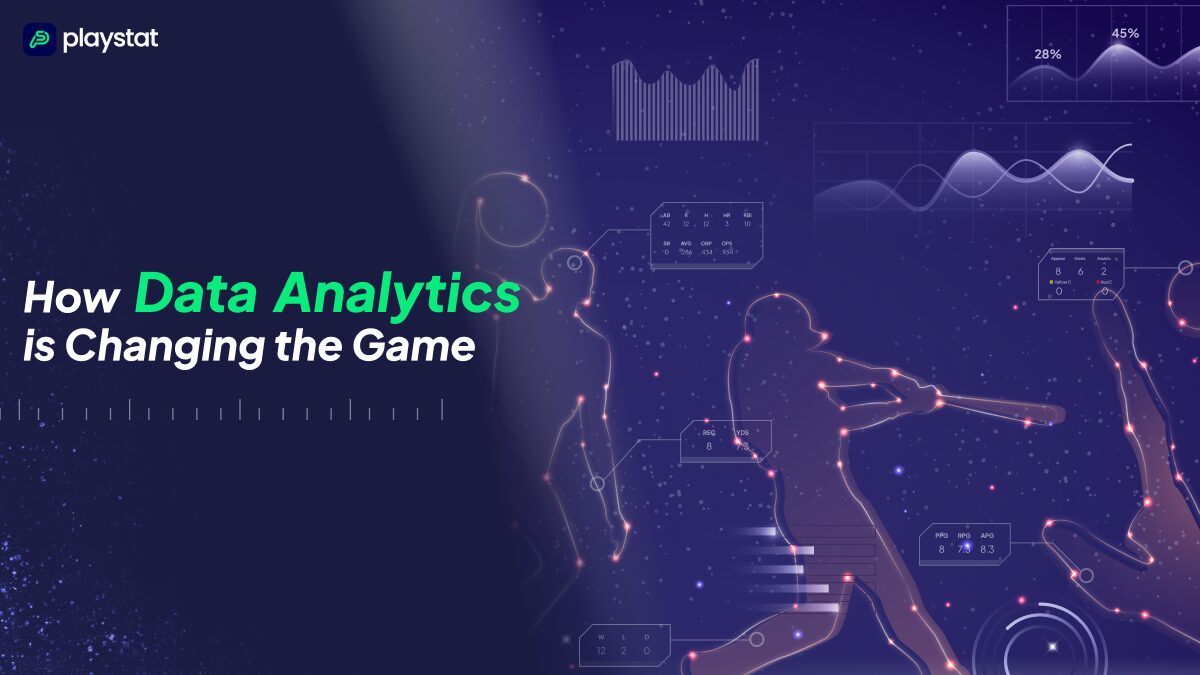The Ultimate Edge: How Data Analytics Drives Sports Wins
The Ultimate Edge: How Data Analytics Drives Sports Wins
November 19, 2024

In today’s world of sports, data analytics has become a game-changer. Predictions are no longer just educated guesses or based on basic stats; they’re crafted from deep analysis of complex data points. From professional teams to dedicated fans, data analytics has become the go-to tool for making smart, strategic decisions. Let’s explore how data analytics has taken sports predictions to a whole new level and why it’s revolutionizing the way we think about the game.
- Data Is Everywhere in Sports
Data in sports has grown like never before. Today’s advanced metrics track everything—player movements, team strategies, and even real-time performance stats. With so much data available, analysts, coaches, and fans can make sharper predictions. In sports like basketball, baseball, and soccer, analytics help us understand not just what happened, but why, and what it could mean for the future.
Learn more about basketball data.
- Key Metrics That Make Predictions More Accurate
Some metrics have really changed the game when it comes to making predictions:
– **Player Efficiency Rating (PER)**: In basketball, PER shows how efficient a player is on the court, helping us see beyond just points scored.
– **Expected Goals (xG)**: In soccer, xG estimates the chances of a goal, giving a better picture of a team’s offense.
– **Win Probability Models**: Used across sports, these models calculate a team’s chances of winning at any given time, based on history and live stats.
These stats provide insights beyond the basics, giving predictions a big boost in accuracy.
- How AI and Machine Learning Are Shaping the Future of Sports Predictions
AI and machine learning have taken sports predictions to a whole new level. By processing tons of historical and real-time data, AI can spot patterns and make highly accurate forecasts. For instance, in baseball, AI models can predict what type of pitch a pitcher is likely to throw in different situations, giving teams an edge on the field.
And with AI, these models keep improving as they learn from more data, making predictions smarter and even better at adapting to the game’s changing dynamics.
Read about AI’s role in sports analytics
- Predictive Analytics: A Game-Changer for Fans and Analysts
Predictive analytics is a powerful tool for those who want a deeper understanding of the game. It analyzes everything from team form to player injuries, past matchups, and even weather. Platforms like PlayStat let users weigh these factors to fit their unique approach, making predictions that feel more personal and on point.
By embracing predictive analytics, fans and analysts can go beyond surface-level stats and get a more complete picture of the game.
Explore how PlayStat helps with data-driven sports predictions
- How Teams and Athletes Use Data for an Edge
Data-driven predictions aren’t just for fans—they’re changing how teams and players approach the game, too. Coaches and athletes now use predictive insights to fine-tune strategies, manage workloads, and make in-game adjustments. Some examples include:
– **Load Management**: In the NBA, teams use player tracking to find the best rest periods and prevent injuries.
– **Opponent Analysis**: Football teams analyze opposing tendencies and create game plans to target weaknesses.
With these insights, teams can turn data into a winning strategy.
- A New Era for Fans
Fans now have access to data and insights that were once only available to teams. Platforms like PlayStat allow fans to become analysts in their own right, diving into data to track players, understand game trends, and make their own predictions. This new level of engagement lets fans enjoy a richer experience and understand the game on a whole new level.
With these tools, every game becomes a learning opportunity, and every prediction feels like a personal win.
Conclusion
Data analytics has changed the way we look at sports predictions. It’s turned guesswork into a science, with models and metrics that provide deeper insights than ever before. As data and technology evolve, we’re seeing a new era where teams, analysts, and fans use insights to make smarter, better-informed decisions. Whether you’re on the field, cheering in the stands, or following along at home, data analytics is helping everyone see sports in a smarter, more meaningful way.

